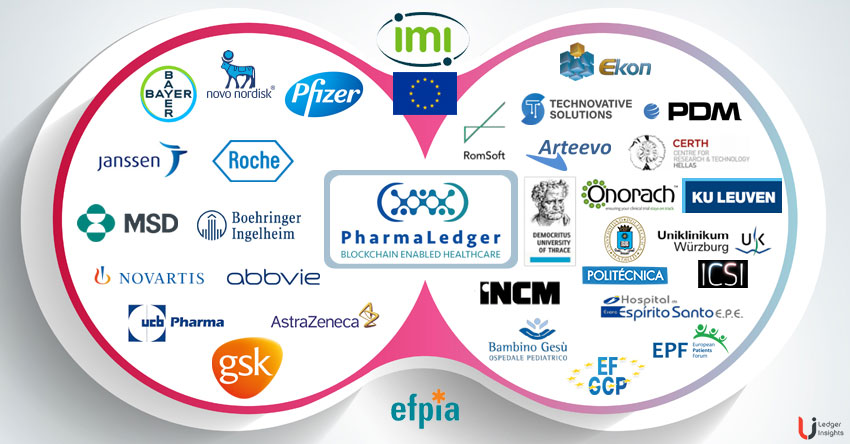Blockchain healthcare consortium PharmaLedger has announced the first eight use cases for its initiative. Launched in January 2020, the project is due to last three years. It has a budget of over €20 million, which it received largely from the European Union’s Innovative Medicines Initiative (IMI) and the European Federation of Pharmaceutical Industries and Associations (EFPIA). PharmaLedger is comprised of 29 members, including 12 global pharmaceutical companies such as GSK and Novartis.

The use cases focus on the three particular domains the project is centered around. These are providing innovation for supply chains, health data, and clinical trials.
The use cases:
- Clinical supply (traceability)
- Finished goods traceability
- Anti-counterfeiting
- Personalized medicines
- Dynamic permissioning
- eConsent
- IoT medical device trials
- Clinical trials recruitment
In the supply chain domain, PharmaLedger is focussed on building a blockchain core that assists with the clinical supply of investigational medicinal products and traceability of finished products. The functionality will include material traceability, inventory visibility, and digital recalls as well as anti-counterfeiting measures. Final products that have been through this system will be marked with a barcode, a scan of which can provide the customer with an eLeaflet that displays information on recalls, the product and interactions with other medications.
In the health data domain, PharmaLedger is launching processes to enhance the recruitment of patients for clinical trials. It seeks to fix the current flawed and expensive system by creating a platform with profiles for both patients and the trials. The consortium hopes that this will help match the two more effectively and streamline the whole process.
Also included in this domain is the Personalized Medicine project, intended to produce better and more personalized treatments for patients while maintaining privacy.
For the clinical trials domain, projects include an “eConsent use case” that works to digitize the current paper-heavy process, as well as a medical device application that implements IoT data into advanced analytics.
PharmaLedger played up security and privacy as major themes in a recent statement on these projects. For example, the dynamic permissioning project, which straddles the health data and clinical trials domains, attempts to strengthen patient data ownership and give them total control over which stakeholders can access their health data.
“For Blockchain to achieve its potential in helping our society become digitally trustworthy, mass adoption and true horizontal innovation needs to take place,” said Clarisse Dias da Mota of Novartis and PharmaLedger’s PMO. “PharmaLedger contributes to that by proposing and developing both use case specific solutions and an overarching open source platform.”
Core blockchain infrastructure
Following on from our earlier report on PharmaLedger, the blockchain infrastructure will support multiple chains. Various blockchains and technologies will be “rooted” on a root blockchain. The aim is to use the blockchain protocol, which is deemed to most fit the use case.
The project also uses off-chain data storage and self-sovereign applications (as opposed to identity). That way, the data and logic are within the control of the application owner. A prototype is being built using this design, and more will be revealed in a future whitepaper.






